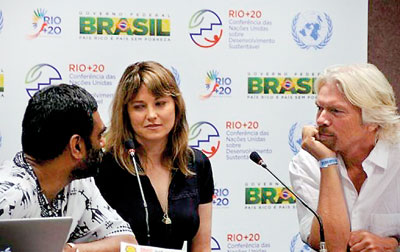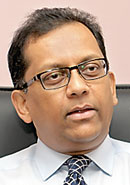Reforming Colombo sewerage system will take 8 yrs:CEA official
View(s):From all available accounts, the government appears to be neglecting Colombo, the premier business centre of the country, at least in the health of the city dwellers as well as the thousands of people who converge to the city for work� in one particular area – flooding of the metropolis. K.H. Muthukuda Arachchi, Deputy Director General, Environmental Pollution Control Division from the Central Environmental Authority (CEA) told a group of business people and industrialists that Colombo’s sewerage system not reformed since colonial times and which is heavily incapacitated and damaged would take eight long years for this sewerage system to be overhauled. Mr Muthukuda Arachchi in the course of his presentation “Environmental Pollution Control Towards a Green Economy” at a symposium organized by the Ceylon Chamber of Commerce to mark the World Environmental Day, held last week at the CCC Auditorium, said that the greater Colombo sewerage system would be overhauled by 2020.
He said that to combat water pollution, common wastewater treatment plants have been initiated in Ekala/Ja-Ela (on-going), Ratmalana/Moratuwa (under construction) while the Greater Kandy proposal awaits EIA approval. He enumerated the saga of wasting water where a single toilet flush would take three gallons, a 10-minute shower takes 50 gallons and a single load of laundry 40 gallons of water and noted that the warning of a looming water crisis is on as the water resources have been static. In the 20th century world population has tripled; the use of water grew six times and a further addition of three billion people in mid-century is predicted.
The senior official said that due to over pumping, the groundwater in several countries is almost gone which leads to more food shortages and higher prices. China is already developing large grain deficits, as are India, Pakistan and Egypt. He said that Sri Lanka’s water problem is fast becoming a hunger problem and said that water pollution is a crime. He said that as a result of Green House Gas emissions the earth gets heated up and due to this the icecaps would gradually melt and the sea-levels tend to rise, getting some islands submerged and this is applicable to Sri Lanka too.
He said that they have taken major initiatives towards the green economy. Chalaka Fernando, Environment and Systems Compliance Manager, Holcim Lanka Ltd, speaking on “LCA (Life Cycle Assessment) – a tool for environmental responsibility beyond compliance” said that while the resources are either stagnant or dwindling, the population is growing, posing a challenge of meeting the global energy needs. The population is growing and by 2050, the UN forecasts that there will be 9.3 billion living on this planet.
He said that LCA is a structured, internationally standardized method and management tool for quantifying the emissions, resources consumed, as well as environmental and health impacts that are associated with goods and services (products).� He said that LCA takes into account the product’s full life cycle up to the disposal of remaining waste. He said that it would not be enough for any industry responsible market leader to comply with the regulations, but to adopt� a total life cycle than ‘confining’ to own processes during goods and services production. Several other research/resource persons addressed this half day symposium.
comments powered by Disqus

















